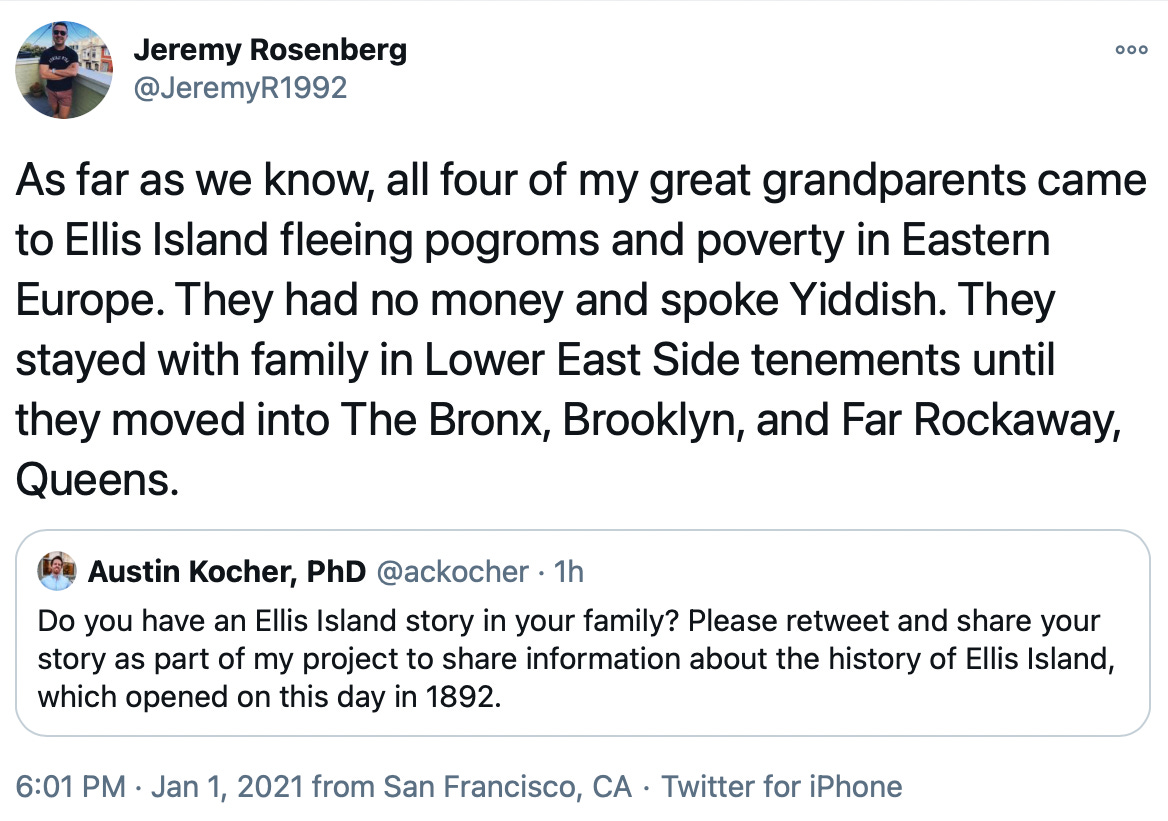Ellis Island Lives on Through Stories
40% of Americans can trace at least one ancestor through Ellis Island, which opened on this day in 1892. Here are some of their stories.
Ellis Island, the Gateway to the New World, has a rich and complicated history. As I described in a previous post here (Ellis Island Opened on New Years Day 1892: A Look Back) and in a day-long theme on Twitter, the island was first used to hang pirates, then later became an immigration screening center, a detention center, and now a museum.
But I wanted to do more than just talk about the history of Ellis Island. I also wanted to learn more about how people today are still connected to the island in some way. So I asked people online to share stories of their family’s connection to Ellis Island. (See the responses by clicking here.)
Angelo Paparelli, a well-known immigration author, described how all four of his grandparents came through Ellis Island and shared a quote from an Italian immigrant who said:
“I came to America because I heard the streets were paved with gold. When I got here, I found out three things: First, the streets were not paved with gold. Second, they weren’t paved at all. Third, I was expected to pave them.” — An Italian Immigrant whose words are posted at the Ellis Island Museum
Another person described an immigrant experience often left out of traditional immigration narratives: the experience of coming to the United States, finding it lacking, and returning home to Europe or elsewhere. In this case, it was a German immigrant who left the United States during the depression and ended up fighting for the German army in World War II.
Immigration attorneys also chimed in. Attorney Jeremy Rosenberg shared how his grandparents, all fleeing pogroms in Eastern Europe, entered the country through Ellis Island and settled in New York City — an important reminder of the ways in which the New World served as a refuge at times.
Dr. Elizabeth Cohen, an immigration researcher at Syracuse University, shared an ongoing family tradition: powdered sugar doughnuts in remembrance of her mother’s arrival and seeing doughnuts handed out at the center.
These stories remind us that America’s immigration history is never far in our collective past. And while many Americans do not fit easily into the immigration narrative, either because they were brought forcibly through slavery or because they are indigenous and trace their lineage to the land rather than colonialism, those who can connect to their immigrant background may be able to better relate to the challenges facing new immigrants.
If you like getting news about the immigration system, sign up for this newsletter, share it with friends, and post it online. You can also follow me on Twitter here.







